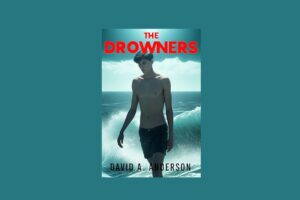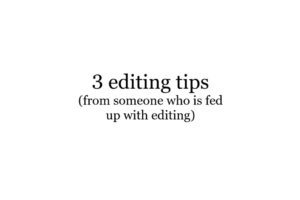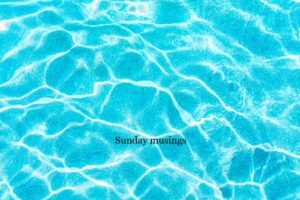Dystopian fiction typically incorporates multiple genres in an amalgamation of themes, tones and ideas. Arguably all types of fiction contain fragments from differing genres but, unlike romance, crime and thrillers for example, dystopian fiction doesn’t tend to follow a set format. This may be because it is a sub genre of science fiction which in itself is a diverse and indefinable category of literature, but it may also be because it is not a fully formed genre and is technically deemed more of a concept.
However one would choose to describe it, perhaps the genre that I find to be most comparable to dystopian fiction is horror. Both deal with primal fear, lack of control, often a single enemy, power struggles and an uncertain conclusion. It is this unpredictability that makes both genres so frightening.
The aim of both styles of fiction is to horrify and for these horrors to linger in the mind even after the story has ended, the difference between the two being that horror tends to play on primal fears whereas dystopias tackle sociological issues and fears beyond the self.
Both genres provide fascinating insights into the human psyche, but horror tends to be a litt more stagnant as it repeats its own mistakes, which usually leave the audience disappointed and frustrated.
Personally, my biggest problem with horror is usually the conclusion. Most horrors build up slowly, gradually layering the creepiness and scares until the big reveal – which is usually rushed, predictable, a cop out or completely nonsensical yet masked as complex or otherworldly. Dystopian fiction also builds up to a crescendo in a similar fashion, but the conclusion is a revelation of information, a realisation of the truth, a glimpse of hope or complete destruction. As the fears played on in horror are so primal, for it to work the conclusion must be unexpected (which is difficult to pull off), a death (which is sometimes unsatisfactory), torture or the threat of it (which is not always easy for the audience or reader to identify with) or an explanation of the entirety of the plot (which is both difficult to pull off and can be unsatisfactory).
The dilemma with horror, perhaps more than any other genre, is the fact that it has developed clichés that are seen as necessary for it to be identified as a genre piece. In movies, for example, we accept the unnatural shadows, the music boxes playing by themselves and the jump scares as part of the course. These elements are not required to make a movie frightening, and in fact they can make it less so, but why are we still using them? Probably because inducing fear is second to humour as the hardest emotion to induce in an audience and, as the internet reveals more and more real life horrors, this task is getting harder and harder to achieve. By making it clear to the audience that THIS IS THE POINT YOU’RE SUPPOSED TO BE SCARED the job is lazily half-achieved.
Another issue I find with horror is its demographic, or rather its perceived demographic. Whether looking for a cheap scare or a fanatic of the genre, there is usually a preconceived notion or even a demand for fiction in this category to follow a specific course. Writers and creators are torn between pleasing the audience, sticking to the genre constraints and finding a plot that is both recognisable yet original. As the saying goes ‘too many cooks spoil the broth’, and as a result horror is often cheapened and forced to become predictable due to its own popularity, which in turn makes it unpopular.
The same may eventually happen for dystopian fiction (just look at the recent bout of YA novels that are carbon copies of one another) but as dystopian fiction is able to adapt to current affairs it can be easily refreshed and reevaluated. Horror deals with our innate fears that will never change, and interpreting them in different ways is incredibly challenging.
Horror is definitely a more difficult genre to get right, but although I find dystopian literature more effective I know that a decent, intelligent horror could overtake any fears I have of a totalitarian government.



Leave a Reply